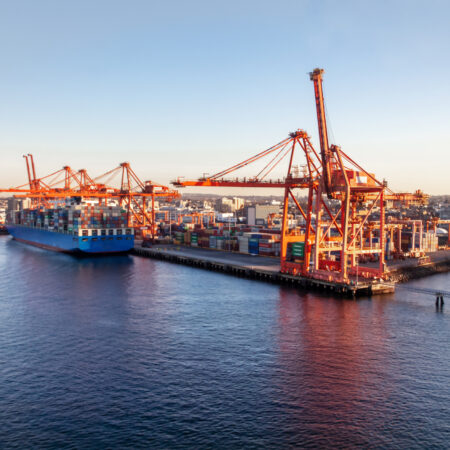Canadian West Coast Port Strikes & You

The ongoing Canadian west coast port strike, currently in its 10th day, is becoming increasingly critical. As ocean carriers scramble to adapt, modifications to their operations are already under way.
At Bestway Logistics, we stand by our commitment to ensure the smooth transit of our customers’ goods. As the situation unfolds, we’re keeping a close eye on developments, with robust contingency plans ready to counteract the strike’s impact.
Here’s the latest on what’s happening:
Diversion of Vessels: Some ocean carriers are rerouting vessels to US ports, unable to unload at Canadian ports like Vancouver or Prince Rupert. This diversion may lead to US port congestion and potential elevation in freight rates.
Disruption of Trade: Trade between Canada and the United States is witnessing disruptions due to the strike. This has ripple effects, negatively impacting businesses on both sides of the border and potentially leading to goods shortages.
Ongoing Negotiations: While talks between the BCMEA and ILWU Canada have recommenced, a breakthrough appears elusive. The two sides remain at odds on pivotal issues such as wages and working conditions.
Despite the complex landscape, we remain hopeful for a speedy resolution. Meanwhile, we are pulling out all the stops to ensure the continuous movement of our customers’ goods. Should you have any questions or concerns, we’re here to help.
For businesses navigating the ripple effects of the strike, we recommend a proactive approach. Here are some robust strategic initiatives you can consider:
- Diversify Shipping Routes: With Vancouver or Prince Rupert as your initial shipping destination, it’s prudent to explore alternative routes to bypass the conflict zones. This may involve rerouting through US ports or pivoting to different modes of transport like rail or air. Diversifying your routes can create a safety net, enabling a seamless flow of your cargo irrespective of the situation at Canadian ports.
- Build Buffer into Your Schedule: It’s essential to acknowledge the wider implications of the strike on the global supply chain. Regardless of whether your shipments directly pass through the affected ports, the fallout could cause unexpected delays. Hence, anticipate potential disruptions by incorporating extra time into your delivery schedules. This buffer can help absorb any unexpected hiccups along your supply chain and ensure timely delivery of your goods.
- Foster Transparent Communication with Customers: In these uncertain times, clear and consistent communication is more vital than ever. Keep your customers abreast of their shipment statuses, potential delays, and steps being taken to mitigate the effects of the strike. This proactive engagement can help manage expectations, build trust, and assure your customers that you’re doing everything possible to ensure their goods arrive as planned.
Remember, while the strike poses a challenge, it also provides an opportunity to showcase resilience, flexibility, and customer-centricity. Leveraging this crisis as a catalyst for enhancing your logistical capabilities and customer communication could strengthen your business in the long run.
